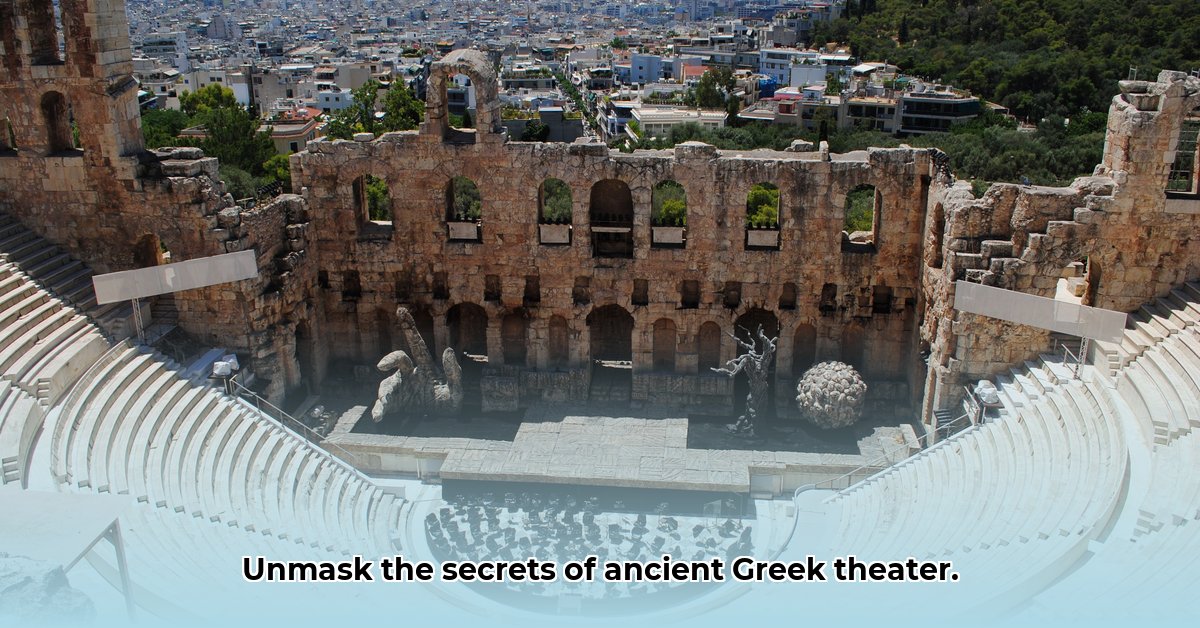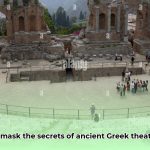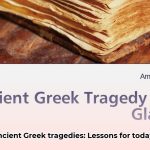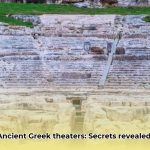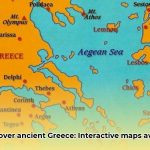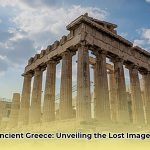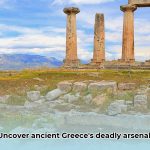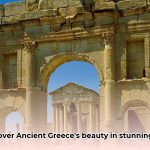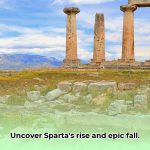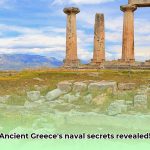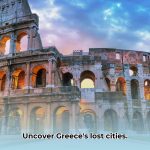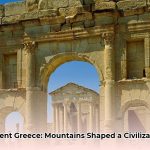Ever wonder where the drama we love today comes from? Ancient Greece offers a compelling glimpse into the origins of modern storytelling! Imagine a time when going to the theater was a deeply meaningful experience, a chance to explore fundamental questions about life, destiny, and the essence of humanity. This isn’t just a dry history lesson. It is a vibrant story about the birth, evolution, and enduring relevance of ancient Greek theater. By the end of this exploration, you’ll gain a newfound appreciation for the enduring power of these plays and the ingenious techniques that have inspired playwrights for centuries. For a deeper dive into the history, check out this great resource on Ancient Greek Theatre.
The Genesis of Greek Theatre: From Dionysian Rituals to Dramatic Art Forms
Imagine stepping back in time to ancient Greece, a world where theater wasn’t merely entertainment – it was a religious experience, a political statement, and a community gathering all rolled into one. The story of ancient Greek theater is a fascinating journey from boisterous religious rituals to the sophisticated plays we still study and admire today. The Greek theatrical traditions laid the foundation for modern stage productions.
The Dawn of Drama: From Ritual to Stage
Think of the earliest forms of Greek theater less as plays and more like supercharged religious festivals. These weren’t your typical church services; they were vibrant celebrations honoring Dionysus, the god of wine, revelry, and fertility. Imagine ecstatic choruses – groups of singers and dancers – performing wild, energetic odes called dithyrambs in his honor. These were passionate, emotional outpourings, distinct from the structured plays we recognize today. These dithyrambs weren’t just any songs; they were carefully crafted hymns, often improvised, their rhythms mirroring the ecstatic states sought by Dionysus’s followers.
Then, along came a legendary figure named Thespis. He’s often credited with a revolutionary idea: he introduced the first actor! Before him, it was all chorus. Thespis’s innovation – adding a single actor to interact with the chorus – marked a monumental shift. It was the spark that ignited the transition from pure ritual to the beginnings of structured drama, laying the foundation for the incredible theatrical masterpieces that would follow. Thespis didn’t just step out of the chorus; he donned masks, embodying different characters and engaging in dialogue, forever changing the course of performance. Did Thespis realize his pivotal addition would shape performance art for millennia to come?
The Golden Age: Tragedy, Comedy, and Theatrical Conventions
The 5th century BCE is often hailed as the golden age of Greek theater. This period saw the rise of legendary playwrights who shaped the very definitions of tragedy and comedy. Aeschylus, Sophocles, and Euripides became household names, their tragedies exploring profound themes of fate, free will, and the human condition. Their plays weren’t just stories; they were powerful explorations of what it means to be human, tackling big questions that still resonate with us today, influencing various theatrical conventions. These playwrights didn’t just write; they innovated, experimenting with stagecraft, character development, and the very structure of dramatic verse.
Alongside these masters of tragedy, Aristophanes emerged as the undisputed king of comedy. His plays weren’t just funny; they were sharp, satirical critiques of society and politics. He used humor as a weapon, targeting everything from political figures to social norms. His plays offer a unique, and often hilarious, window into the lives and concerns of ordinary ancient Greeks. Aristophanes didn’t hold back, using wit and wordplay to expose hypocrisy and challenge authority, cementing his place as a master of political comedy.
The structure of these plays was pretty consistent. Imagine a three-act play, but with a chorus that acted as a kind of Greek-style narrator and commentator, adding another layer to the storytelling. A prologue set the stage, the parados (entrance of the chorus) introduced the chorus, episodes showed the main action unfold, stasimons (choral odes) were choral songs offering commentary and insight, and finally, the exodus (final scene) brought the curtain down. The use of masks, extravagant costumes, and the powerful presence of the chorus are elements that continue to fascinate and inspire theater scholars and artists today. These masks weren’t just coverings; they were crafted to amplify voices and project emotions, allowing actors to portray multiple roles and connect with vast audiences. The 5th Century BCE witnessed the rise of iconic playwrights, whose tragedies continue to tackle thought-provoking themes.
Theater as Civic Engagement: Society and Politics
Ancient Greek theater was more than just a form of entertainment; it was a vital part of the social and political life of ancient Greek society. Wealthy citizens often sponsored productions, viewing it as a prestigious way to demonstrate their status and generosity. Imagine the bragging rights associated with funding a Sophocles production! Plays also served as a forum for discussions of social and political issues, often addressing contemporary anxieties and debates. In essence, Greek theater was a powerful tool for social commentary and engagement. The plays were often performed during major festivals, such as the City Dionysia, which brought together citizens from all walks of life, reinforcing community bonds and fostering civic pride.
The Enduring Impact of Greek Drama: A Lasting Legacy
The influence of ancient Greek theater continues to echo through history, all the way to modern-day theater, influencing the narrative structures of stories. From Shakespeare’s masterpieces to contemporary Broadway productions, the impact is undeniable. Concepts like tragedy, comedy, dramatic irony – these aren’t just theatrical devices; they are fundamental storytelling tools that originated in ancient Greece. The very structure of plays, the use of a chorus, and even the basic dramatic arc of a story all owe a debt to the ancient masters. Modern playwrights continue to adapt and reimagine Greek myths, demonstrating the enduring relevance of these ancient narratives.
Unanswered Questions and Ongoing Research
While we’ve uncovered much about ancient Greek theater, many questions remain unanswered. Scholars continue to debate the precise evolution from ritualistic celebrations to structured plays. The extent of audience participation, the interplay between theater and the city’s political climate, and many other aspects are still under investigation. Ongoing archaeological digs regularly unearth new pieces of the puzzle, steadily refining our understanding of these fascinating performances. There is still much to uncover about how this ancient art form truly shaped the ancient Greek world. For example, the discovery of new fragments of plays or the analysis of ancient theater acoustics could shed further light on these mysteries.
The Enduring Power of Storytelling: Why We Still Care
The lasting appeal of ancient Greek theater lies in its exploration of universal themes – justice, fate, ambition, love, loss – timeless issues that continue to resonate deeply with audiences across cultures and centuries. They remind us that the core elements of the human experience, with its triumphs and tragedies, remain constant through the ages. The characters and their dilemmas, though rooted in ancient Greek society, grapple with emotions and challenges that are instantly recognizable to modern audiences. Does the consistent fascination with Greek theater reinforce the idea of a shared humanity across different eras? This enduring power of these stories is a testament to the depth and quality of the writing and its exploration of the human condition.
Looking Ahead: The Legacy Continues
The legacy of ancient Greek theater isn’t confined to dusty museum displays or academic texts. It’s a vibrant, evolving tradition, constantly reinterpreted and reimagined while retaining its fundamental values. This legacy continues to inspire theatre professionals, educators, the tourism industry, and researchers in numerous ways:
| Stakeholder Group | Short-Term Actions | Long-Term Vision |
|---|---|---|
| Theatre Professionals | Adapt Greek techniques in modern productions. | Create innovative works exploring ancient themes in new contexts. |
| Educators | Integrate Greek plays into curricula. | Develop immersive learning experiences based on ancient traditions. |
| Tourism Industry | Promote ancient theaters as historical sites. | Create theatrical tours and immersive experiences. |
| Researchers | Investigate origins and evolution of Greek drama. | Explore the links between ancient theatre and society’s values. |
The legacy of Ancient Greek Theatre isn’t just about history; it’s about the enduring human need for storytelling, for exploring the big questions, and for sharing our experiences through performance. It’s a legacy that continues to enrich our lives and inspire us to create and experience art even today. The influence extends beyond the stage, shaping our understanding of narrative, character, and the power of collective experience.
Psychagogia: How Ancient Greek Theatre Served Mental Well-being
Ancient Greek theater wasn’t just entertainment; it served a vital therapeutic role, a concept known as psychagogia (the art of influencing the soul). This deeply impacted how plays were structured and experienced. The ancient Greeks believed that witnessing and processing powerful emotions in a safe, communal setting could lead to psychological healing and a greater understanding of oneself and the world. Did the need to evoke strong emotions, then cleanse them, shape the very architecture of these performances? This emphasis on emotional well-being and the power of art to heal continues to resonate with modern audiences and practitioners.
The Power of Catharsis
The concept of catharsis (emotional cleansing) is central to understanding psychagogia. Greek tragedies, with their tales of suffering and loss, weren’t just meant to sadden the audience. Rather, they aimed to guide viewers through a potent emotional journey, culminating in a sense of release and renewal. The playwrights carefully crafted the narratives to evoke pity and fear, emotions that, when experienced vicariously, could lead to a sense of purification. Isn’t catharsis, even in a fictional context, a powerful way to process and understand real-life emotions? This cathartic release profoundly influences the dramatic arc.
Think of it like a rollercoaster. The plot builds tension, taking the audience to emotional heights, before a final resolution provides relief. This carefully constructed emotional arc isn’t accidental. It’s a deliberate design for achieving catharsis. The use of music, dance, and powerful language further intensified the emotional experience, creating a transformative effect on the audience.
Structure and Emotional Impact
This therapeutic goal shaped the structure of Greek plays. The three-part structure (prologue, episode, exodus), the use of choruses, and the specific choices of language all contributed to the overall emotional impact. The chorus, for example, often served as a kind of emotional guide, commenting on the action and helping the audience to process the intense emotions displayed. The chorus wasn’t just a narrator; it was a collective voice, representing the community’s response to the events unfolding on stage.
The use of heightened language, poetic imagery, and powerful metaphors amplified the experience, creating a more intense and memorable theatrical event. This deliberate crafting of the spectacle, from beginning to end, was vital to achieving the desired therapeutic effect. The playwrights understood the power of language to evoke emotions and create vivid mental images, enhancing the audience’s engagement with the story.
Psychagogia and the Community
Ancient Greek theater was a communal experience. Performances were major social events, attended by citizens from all walks of life. This collective viewing fostered a shared emotional experience, strengthening social bonds and providing a sense of unity. This social aspect of psychagogia influenced the choice of stories and themes. Plays often explored universal human experiences, allowing audiences to connect with the characters and their struggles on a deeply personal level. The shared experience of witnessing these stories created a sense of empathy and understanding, fostering a stronger sense of community.
Beyond Entertainment: A Holistic Approach
The therapeutic function of ancient Greek theater wasn’t separate from its artistic merit. They were inextricably linked. The dramatic structure—the carefully crafted rise and fall of action, the use of language and music—all worked together to create a deeply moving and ultimately therapeutic experience. By understanding this therapeutic intent, we unlock a deeper appreciation for the sophistication and artistry of ancient Greek drama. The ancient Greeks recognized the importance of both mental and physical well-being, and they saw theater as a way to address both aspects of human health.
Key Takeaways:
- Catharsis: Ancient Greek tragedies aimed to evoke and then cleanse strong emotions in audiences, a process key to psychagogia.
- Dramatic Structure: The three-part structure of plays, the role of the chorus, and the use of language were all carefully designed to achieve catharsis.
- Communal Experience: The shared experience of watching a play in a communal setting contributed to the therapeutic benefits.
- Holistic Approach: The therapeutic and artistic aspects of ancient Greek theater were intertwined. The drama’s structure was instrumental in facilitating emotional healing.
Economic and Political Underpinnings: Funding and Civic Engagement
Ancient Greek theatre wasn’t solely an Athenian phenomenon; diverse theatrical traditions flourished across the Greek world. Funding models varied widely, from state-sponsored events to private patronage by wealthy individuals (the choregos). Theatre played a significant role in civic life, serving not just as a source of entertainment but also as a platform for political messaging and announcements. The economic and political forces that shaped ancient Greek theatre reveal much about the values and priorities of the societies that created it.
Beyond Athens: A Wider Stage
We often picture ancient Greek theatre as synonymous with Athens, but thriving theatrical traditions existed across the ancient Greek world, from Sicily to Megara and beyond. This widespread activity reveals a fascinating tapestry that extended far beyond the Athenian Acropolis. These regional variations demonstrate the dynamism and adaptability of ancient Greek culture, as different communities embraced and adapted theatrical forms to suit their own needs and tastes.
Funding the Spectacle: From State to Patron
In Athens, the state often supported theatrical productions, a powerful statement about the value placed on drama similar to modern public funding for arts. Elsewhere, however, private funding became critical. Wealthy citizens, known as choregoi, would sponsor productions, gaining prestige and social influence, reflecting the diverse political structures across Greek city-states. The choregos played a vital role in ensuring the quality of productions, often investing significant resources in costumes, sets, and training for the actors and chorus. Did the reliance on private patronage allow for more experimental and politically charged productions? The way a city funded its theatre mirrored its broader governmental organization.
Political Theatre: More Than Just Entertainment
The theatre wasn’t merely a space for entertainment, but a vibrant social and political forum. Plays could subtly, and sometimes not so subtly, promote certain viewpoints or even influence public opinion. Furthermore, theatres frequently hosted public announcements and political gatherings. The stage served as a public address system, a powerful tool for those in power to connect with citizens. This duality—entertainment and political engagement—shaped the very essence of ancient Greek theatre. The plays often addressed contemporary issues, prompting debate and discussion among the audience.
A Mosaic of Traditions: Regional Variations
It wasn’t a case of simply replicating the Athenian model everywhere. Regional variations abounded. Did Sicilian comedies differ greatly from Athenian ones? Probably! The artistic styles, the themes, even the way the plays were staged, likely adapted to their unique context. Sicilian comedy, for example, was known for its farcical elements and its focus on everyday life, while Athenian comedy often tackled more political and philosophical themes. The challenge for scholars is uncovering those differences based on the surviving evidence, which is often incomplete.
The Limits of Our Knowledge: Uncovering the Missing Pieces
One must acknowledge the limitations. We have far more evidence from Athens than from other regions, leading to crucial gaps in our understanding. This doesn’t diminish the significance of non-Athenian theatre; rather, it emphasizes the need for continued research. Archaeological digs, further study of existing inscriptions and literary sources, all hold the promise of revealing a richer, more nuanced picture of ancient Greek theatre’s economic and political significance. The discovery of new theatrical sites and the analysis of ancient texts could provide valuable insights into the diversity of theatrical traditions across the Greek world.
Key Takeaways:
- Ancient Greek theatre wasn’t solely an Athenian phenomenon; diverse theatrical traditions flourished across the Greek world.
- Funding models varied widely, from state-sponsored events to private patronage by wealthy individuals (the choregos).
- Theatre played a significant role in civic life, serving not just as entertainment but also as a platform for political messaging and announcements.
- The interplay between theatrical traditions across regions involved both influence and independent development.
- Our understanding of non-Athenian theatre is limited by the nature and quantity of surviving evidence.
Moving Forward: Reimagining the Greek Stage
What can we learn from these diverse theatrical landscapes? For classicists, it means broadening the scope of research to include locations beyond Athens. Museum curators can create more inclusive exhibitions, showcasing materials from various regions. Theatre professionals can draw inspiration from the regional variations to create innovative interpretations. By acknowledging the crucial contributions of city-states both big and small, we can gain a deeper appreciation for the cultural dynamism of ancient Greece. This broader perspective can also inspire new approaches to funding and supporting the arts in contemporary society.
Ancient Greek Theatre: A Holistic Approach to Mental Wellness
Ancient Greek theatre, encompassing both tragedy and comedy, functioned as more than mere entertainment; it served a crucial therapeutic role. Catharsis, the emotional purging achieved through witnessing dramatic narratives, played a central role in fostering mental well-being. Examining the theatre of the time period is a useful exercise in understanding mental wellness then, and what it can look like today. The ancient Greeks believed that art, and particularly theatre, could provide a valuable outlet for processing difficult emotions and achieving a sense of inner peace.
The Stage as a Healing Space
Imagine stepping into an ancient Greek amphitheater where Ancient Greek Theatre and its Holistic Approach to Therapy wasn’t just about storytelling; it was about shared experience, emotional release, and ultimately, healing. Aristotle’s concept of catharsis suggests that witnessing dramatic suffering might lead to psychological relief. This wasn’t just passive viewing; it was active participation in a collective emotional journey. The audience members weren’t simply spectators; they were active participants in the unfolding drama, connecting with the characters and their struggles on a deeply personal level. Did the ancient Greeks intuitively understand the power of shared emotional experiences in promoting healing?
Epidaurus: Where Drama Met Healing
The Asclepieion at Epidaurus provides compelling evidence as a renowned healing sanctuary. Here, dramatic performances weren’t separate from medical treatments; they were integral to the healing process. Patients actively engaged in these theatrical events as part of their therapy, suggesting a holistic understanding of well-being, recognizing the interconnection of mind and body. The integration of theatre into the healing process at Epidaurus highlights the ancient Greek belief that mental and physical health were inextricably linked.
The Balance of Tragedy and Comedy
The therapeutic benefits weren’t solely confined to the gravity of tragedy. Comedy, with its laughter and wit, played a crucial balancing role. It offered immediate stress relief, boosting endorphins and fostering a positive emotional state. Moreover, comedy’s social commentary could spark self-awareness and reflection, contributing to a sense of emotional resilience. Think of it like this: tragedy confronts our deepest fears, while comedy offers a much-needed moment of levity. Is the balance between tragedy and comedy essential for a healthy society? This balance reflects the ancient Greek emphasis on moderation and the importance of maintaining a healthy emotional equilibrium.
A Shifting Medical Landscape
While early Greek medicine primarily focused on physical ailments, a fascinating evolution occurred later. Later texts reveal a growing acknowledgement of the psychological dimensions of health. The “therapy of the word,” a precursor to modern psychotherapy, started to gain traction, underscoring a growing comprehension of the mind-body connection and the ability of shared experiences—like those offered by theatre—to aid in healing. This shift reflects a growing awareness of the importance of mental and emotional well-being in overall health.
A Timeless Legacy
The enduring impact of Ancient Greek Theatre and its Holistic Approach to Therapy is undeniable. Modern initiatives like the “Theater of War” project powerfully demonstrate this legacy. By using ancient Greek tragedies in therapeutic settings, particularly with veterans, we see the continuing potency of structured artistic expression in addressing contemporary mental health challenges. These programs demonstrate the enduring power of ancient Greek drama to address contemporary issues and promote healing.
Key Takeaways:
- Ancient Greek theatre, encompassing both tragedy and comedy, functioned as more than mere entertainment; it served a crucial therapeutic role.
- Catharsis, the emotional purging achieved through witnessing dramatic narratives, played a central role in fostering mental well-being.
- The Asclepieion at Epidaurus exemplifies the integration of dramatic performances into therapeutic regimens.
- Comedy offered a vital counterpoint to tragedy, offering stress relief and promoting resilience.
- While classical Greek medicine initially prioritized physical treatments, later developments showcased a growing understanding of the mind-body connection and the therapeutic potential of words and shared experience.
- Modern applications, such as the “Theater of War” project, demonstrate the enduring relevance of ancient Greek dramatic principles in contemporary mental health practices.
https://www.smithsonianmag.com/arts-culture/healing-power-greek-tragedy-180965220/
- Discover Ancient Greece Weapons: A Comprehensive Guide to Military Technology - August 8, 2025
- Discover Ancient Greek Swords: A Comprehensive Guide - August 8, 2025
- Explore Ancient Athens: Unveiling the City’s Secrets Through Maps - August 8, 2025
